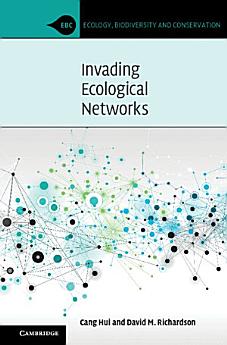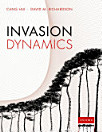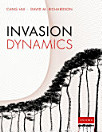Invading Ecological Networks
ene 2022 · Cambridge University Press
Libro electrónico
456
Páginas
reportLas calificaciones y opiniones no están verificadas. Más información
Acerca de este libro electrónico
Until now, biological invasions have been conceptualised and studied mainly as a linear process: from introduction to establishment to spread. This volume charts a new course for the field, drawing on key developments in network ecology and complexity science. It defines an agenda for Invasion Science 2.0 by providing new framings and classification of research topics and by offering tentative solutions to vexing problems. In particular, it conceptualises a transformative ecosystem as an open adaptive network with critical transitions and turnover, with resident species heuristically learning and fine-tuning their niches and roles in a multiplayer eco-evolutionary game. It erects signposts pertaining to network interactions, structures, stability, dynamics, scaling, and invasibility. It is not a recipe book or a road map, but an atlas of possibilities: a 'hitchhiker's guide'.
Acerca del autor
Cang Hui is a Professor of Mathematical Biology and holds the South African Research Chair in Mathematical and Theoretical Physical Biosciences at Stellenbosch University. He is a trustee of the International Initiative for Theoretical Ecology. He has published widely on biological invasions and ecological networks.
David M. Richardson is Director of the Centre for Invasion Biology at Stellenbosch University. He is a member of the Species Survival Specialist Group on Invasive Organisms for the International Union for Conservation of Nature. His main expertise is in invasion ecology, and particularly alien tree invasions. He has published extensively on invasive species and restoration ecology.
Califica este libro electrónico
Cuéntanos lo que piensas.
Información de lectura
Smartphones y tablets
Instala la app de Google Play Libros para Android y iPad/iPhone. Como se sincroniza de manera automática con tu cuenta, te permite leer en línea o sin conexión en cualquier lugar.
Laptops y computadoras
Para escuchar audiolibros adquiridos en Google Play, usa el navegador web de tu computadora.
Lectores electrónicos y otros dispositivos
Para leer en dispositivos de tinta electrónica, como los lectores de libros electrónicos Kobo, deberás descargar un archivo y transferirlo a tu dispositivo. Sigue las instrucciones detalladas que aparecen en el Centro de ayuda para transferir los archivos a lectores de libros electrónicos compatibles.





